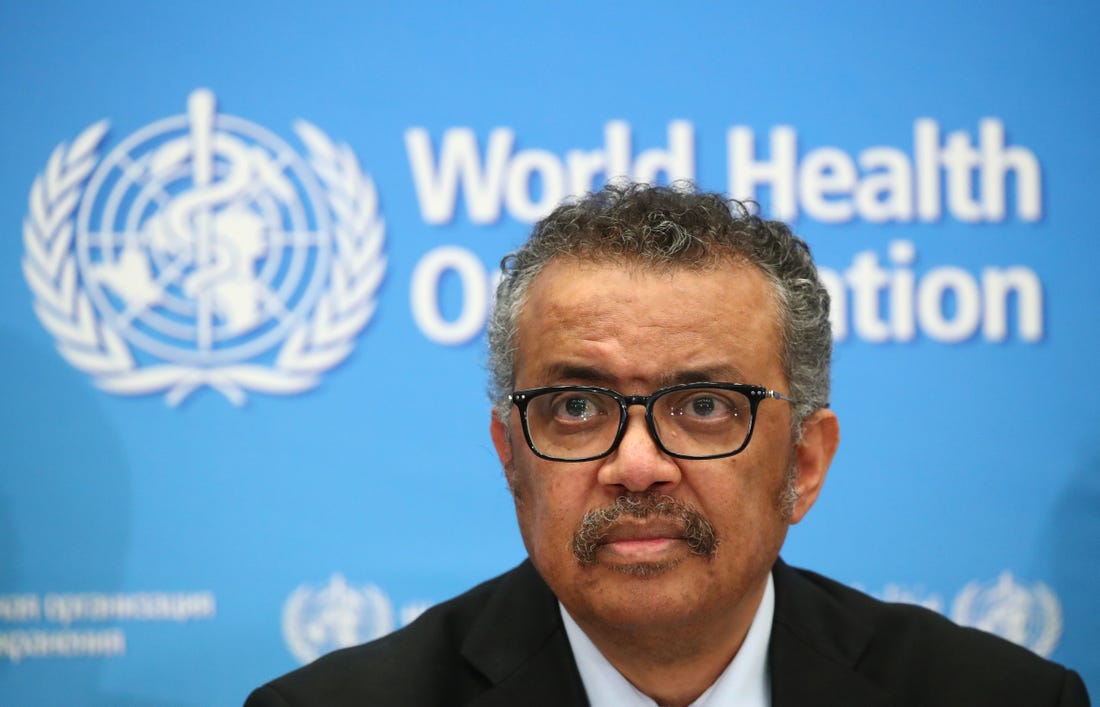The World Health Organisation (WHO), is working with UNICEF on Coronavirus (COVID-19), the response through the historic COVID-19 Solidarity Response Fund powered by the United Nations Foundation and Swiss Philanthropy Foundation.
The WHO disclosed this in a statement posted on the organisation‘s website.
According to the statement, the COVID-19 Solidarity Response Fund has been set up to facilitate an unprecedented global response by supporting the WHO Strategic Preparedness and Response Plan.
READ ALSO :CORONAVIRUS: Fani-Kayode, Dino Melaye Urge FG To Reject 5G Network In Nigeria
As part of the agreement, it stated an initial portion of the money from the Fund – which currently stands at more than $127 million – will flow to UNICEF for its work with vulnerable children and communities all over the world.
The statement quoted Dr Tedros Ghebreyesus, WHO Director-General, as saying “COVID-19 is an unprecedented pandemic requiring extraordinary global solidarity to urgently respond.
“I’m pleased that UNICEF joined the Solidarity Response Fund.
“With their extensive experience both in fundraising and in implementing programmes, this partnership will help us to work together closely to save lives.”
The money collected through the fund will be used, among others, to train and equip communities and health-care workers to prevent, detect and treat COVID-19.
It will help countries expand their health-care capacity and mitigate its social impact, especially on women, children and vulnerable social groups. And it will accelerate research and development of treatments and preventive vaccines.
As a key partner in this joined-up effort, UNICEF will lead emergency efforts to ensure families and communities in the most vulnerable countries are fully engaged in the response.
It will also ensure that they have access to water, sanitation and hygiene and other infection prevention and control measures.
UNICEF will also ensure children, caretakers, and frontline responders such as social workers, teachers and healthcare workers are supported through evidence-based guidance through its vast community outreach and country programmes.
The statement also quoted UNICEF Executive Director Henrietta Fore as saying:“ This is an extraordinary emergency that demands an extraordinary response.
“We need all hands on deck—individuals, corporations, foundations, governments and other organisations around the world; UNICEF is pleased to join the Solidarity Response Fund.
“It will bolster our efforts to strengthen health and sanitation systems and help protect the most vulnerable families from knock-on impacts of COVID-19 on already overstretched health systems.”
According to the statement, Funds raised will be spent in alignment with the global response plan, and where needs are greatest.
In addition, it stated that the Coalition for Epidemic Preparedness Innovations (CEPI), a key partner leading the financing for research and development for novel vaccines to combat COVID-19, would work closely with WHO.
The COVID-19 Solidarity Response Fund was set up at WHO’s request by the UN Foundation and Swiss Philanthropy Foundation and launched three weeks ago.
It is the only way for individuals and organisations to contribute directly to WHO’s global efforts to tackle the pandemic.
To date, the fund has $127 million raised or committed from more than 219,000 individuals from all over the world plus more than 90 global companies and organisations.
The partnership is also a tremendous demonstration of solidarity across UN organisations in coordinating, partnering and supporting each other in dealing with the immediate and longer-term impact of the pandemic.
The statement further quoted President and CEO of the UN Foundation, Elizabeth Cousens as saying there had never been a more urgent need for global cooperation.
“The COVID-19 pandemic shows us that we all can play a part to stop the spread.
“The incredible generosity shown to the COVID-19 Solidarity Response Fund from around the world will help WHO, UNICEF, CEPI and partners accelerate their lifesaving work, especially to support the most vulnerable communities and speed the development of a vaccine.”

